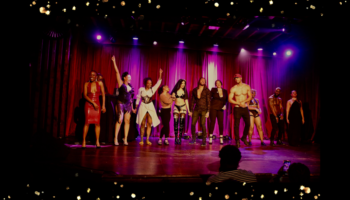Sex education
The Top 5 Sex Ed Questions I Hear All the Time
Published: SEPTEMBER 4, 2020 | Updated: FEBRUARY 15, 2022
Most sex ed questions are tied to many things we hold most dear—identity, religion, morality, acceptance.
As the old saying goes, there is nothing new under the sun. As human beings we tend to think so though, we believe our personal problems are something new and that what we are facing is rather unique.
One of the reasons I love history so much is the realization of how cyclical and universal the human struggle is. Whether a personal, sexual, or relationship-based query people have been struggling, “discovering,” and navigating these same old problems since we started recording our thoughts.
As a sex educator, I love speaking to audiences around the world and seeing how common certain questions tend to be. Once in a great while I will get a question that I didn’t expect or that really requires me to do some deep digging to formulate a solid answer for, but in general there tend to be about 5 themes that cover almost every question I get.
Read: Why We Should All Be Talking About Sex A Lot More
These themes can be broken down further into two main categories: is this ok? and how do I become comfortable with this?
The “is this ok” category tends to align with fears around whether something that a person feels or experiences is acceptable to society, in other words, can I accept myself and have others still embrace me as I am?
The “how do I become comfortable with this” group usually comes after the previous question is addressed. If this is ok what do I do about it? Can I still love myself, am I who I thought I once was?
By seeing the commonalities in our questions we can identify how connected we all are in our worries and joys around sexual experiences. No matter our age, race, or gender we can see that we are not alone but are more often than not intrinsically linked through our questioning and needs for affirmation and permission to be ourselves.
1. How Do I Try Something New?
People like variety, some more than others, but for many the question of stepping outside of one’s bounds is exciting. Whether it is about trying a new kinky scene, sex toy, or even just a new position, the puzzle remains as to how to dip one’s toe in new waters.
With high school students I often get asked about having sex in any form for the first time, with college students it often is about exploring anal play, and for older adults, it tends to circulate around toys and fantasies.
The answer is to learn as much as you can about the physical and emotional safety/risks of any activity and to go slowly. Anything new must be given extra attention in regard to consent and communication. If any partner feels unsure, pressured, or needs to stop then that is a solid no-go.
Armed with information, clear guidelines, and a safe environment on all fronts new horizons can be explored with joy and pleasure for all.
Read: My partner is a bit too vanilla. How do I introduce new flavors?
2. Does That Make Me ____?
"Does this make me something" questions can cover many bases but most often comes up with regard to LGBTQ identity.
A cisgender man may ask if desiring anal penetration or rimming makes his bisexual or gay. A cisgender woman may desire to present in a masculine-of-center way but not know if that makes her trans, non-binary, or butch. Sometimes people will say they took a quiz online and it said they were xyz but I always have to inform them that there is no test you can take that can decide or disclose your identity for you.
The hardest part of this question is the answer: no one can answer these things for you. Gender identity and sexual orientation are completely personal, your experiences or lack-there-of may make you use a certain identifier at one time but as you grow and change that will evolve as well.
Through personal inquiry, reflection, and with the help of individual and group therapy, we can glean a new understanding of how we identify and what it means to us.
Read: Gay, Straight, Trans: None of it Should Matter...But it Does, For Now
3. Do I Masturbate Too Much?
The "too much" category is sometimes about something other than masturbation but is always somehow connected to the thought that one’s sexual desires are run-a-muck. The general rule is this: something becomes too much when it interrupts other parts of your life.
Replace "masturbation" with something like "social media." We could say if you are on social media so much that you are devaluing in-person relationships, not getting your work done, ignoring your physical/emotional/spiritual/financial wellbeing because of it or needing to lie to cover up what you are really doing—then it’s probably a bit too much for you.
You can’t be addicted to masturbation, but like anything, it can become compulsive and thus eat away at a balance in your life. If you are taking care of all aspects of who you are and still enjoy masturbating plenty then it’s all good and no, it won’t ruin you for partnered sex either.
Read: Incredible Masturbation Stories
4. Is It Ok To Not Like___?
On the flip side of trying something new is the desire not to. With the availability of technology and the exposure to more practices and preferences can come the pressure to like things that just aren’t your flavor.
Media often tells us that “everyone loves___” and that there is something wrong with you if you don’t. For example, if we listened to song lyrics and what movies tell us then everyone adores oral, all gay men love anal, all lesbians scissor, and everyone wants a huge penis and soaking wet vagina in their life. The truth is that you don’t have to be into anything—not even sex.
Many people don’t enjoy partnered sex, solo sex, certain sex acts or a mix of the above—and that is ok. Finding what doesn’t interest you is just as important as learning what does and everyone is entitled to understanding what works uniquely for them.
Read: Helpful Suggestions for Setting Your Sexual Limits
5. Am I Normal?
The number one question category of all time goes to this one, “Am I normal?” It seems to be something that most people struggle with in regard to their sexuality, across the lifespan.
Is my body normal? Are my desires normal? All of it can be boiled down to one answer—yes. Now what you may feel or experience may be uncommon but that is more just a numbers game. Maybe 5% of people have the same experience as you.
That doesn’t mean it’s wrong, gross, or weird, it simply means you are unique but not alone. Perhaps your experience is super common and it seems like everyone is going through the same thing. That’s great too. All that matters is that you are prioritizing consent, compassion, and communication. The rest is just statistical data.
Read: When it Comes to Sex, There's No Such Thing as Normal
In the End
Our sexual selves are in many ways are deepest selves. Since it is so private and hidden away from other aspects of our lives, sex becomes a deep seed at the center of our being straining to blossom and feel the light.
It is also often tied to many things we hold most dear- identity, religion, morality, acceptance. No matter your question, know that you aren’t alone in your search and there is great information out there, so keep asking.




